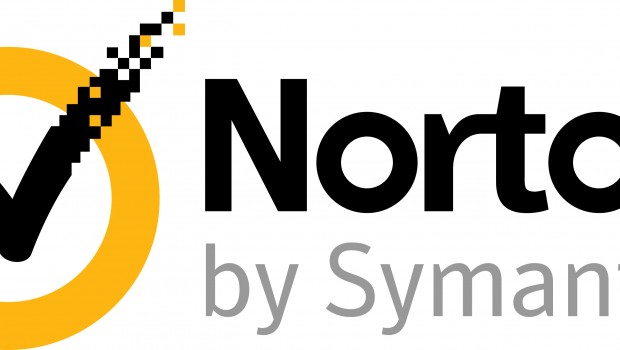Australians choose convenience over cyber safety
Over the last year, almost one in three Australians (30 per cent) experienced cyber crime and 55 per cent of the population say it is at least somewhat likely they will experience cyber crime in the next year. These are some of the key findings from the 2018 Norton LifeLock Cyber Safety Insights Report, an online survey conducted in Australia by The Harris Poll in October 2018 among 1,002 adults 18+ and released today from Norton™ LifeLock™, a Symantec (NASDAQ: SYMC) company. As a result of cyber crime in the past year, the average Aussie lost an estimated AU$240 and spent almost 7 hours (6.6 hours) trying to resolve the resulting issues, such as replacing devices or recovering lost files or money; with almost one in three (31 per cent) needing a week or longer dealing with the problem. The Norton LifeLock Cyber Safety Insights Report also estimates Australians lost 37 million hours and $1.3 billion as an impact of cyber crime in the past year.
The most common cyber crimes ever experienced by Australians include:
o 26 per cent of people have detected malicious software on a computer, Wi-Fi network smartphone, tablet, smart home or other connected device.
o 14 per cent detected unauthorised access on an online banking of other financial account.
o 12 per cent detected unauthorised access on an email account.
In today’s connected world, businesses are prime targets for cyber attacks and unintentional missteps can result in critical exposure of consumers’ sensitive personal information. Nearly three in four (73 per cent) Australians are more alarmed than ever about their privacy. As a nation, Australia does not have an overwhelming sense of trust in providers to manage and protect personal data with a mere one in five respondents trusting government (20 per cent) and financial services (20 per cent) a lot, and we have the least amount of trust in social media providers at only four per cent. In fact, one in five (17 per cent) respondents have gone so far as to delete a social media account due to privacy concerns in the past 12 months.
Conversely, Australians want control of their privacy, but without hassle or cost. Eighty-nine per cent of respondents claim they want to do more to protect their privacy, yet the majority will accept certain risks to their online privacy to make life more convenient (68 per cent). Perhaps in the pursuit of convenience, respondents also claim they are willing to freely give or sell companies personal information such as identification information (15% would give for free, 19% would sell), internet search history (16% would give for free, 30% would sell) and location (19% would give for free, 32% would sell).
In the age of information sharing, control is now at the heart of society’s privacy paradox – from which organisations should have it, to what consequences organisations should face when it is mishandled. Ninety-eight per cent of respondents claim it is an important requirement for organisations to give customers the ability to control how their personal data is used. Furthermore, 61 per cent of respondents say it is absolutely essential for organisations to give consumers a way to report misuse of their personal data. Yet for many Australians, personal accountability for their own personal data is deterred by the pulling of a purse string, with the majority not willing to pay organisations to secure their personal data. In fact, less than one fifth of respondents (19 per cent) are willing to pay a social media provider to ensure protection of personal information, ranking lower than retailers and online shopping sites (24 per cent), healthcare providers and institutions (27 per cent) and financial institutions (27 per cent).
Below are best practices Australians can follow to help protect against online threats:
- Safeguard yourself: To help protect your devices and information from the latest online threats, use a robust multi-platform security solution, such as Norton Security Premium, and update it regularly.
- Never open suspicious-looking emails: Cyber criminals send fake emails or texts that may look legitimate. The links in these emails or texts contain malicious software that can download malware and spyware. The software may be able to mine your computer for personal information, which is then sent to a remote computer where the attacker could sell the information on the dark web or use the information to commit identity theft.
- Make use of a VPN on public Wi-Fi: Many public Wi-Fi connections are unencrypted. This could give cyber criminals a chance to snoop on data being sent and received by your device. If there are software vulnerabilities on your device, attackers can inject malware to help them gain access to your data. In some cases, attackers create fake Wi-Fi hotspots purporting to be legitimate networks.
- Own your online presence: Carefully read the terms and conditions before opening an account or downloading an application, including social media accounts. Be sure to set the privacy and security settings on web services and devices to your comfort level for information sharing.
- Get two steps ahead and manage your passwords: Switch on two-step verification or multi-factor authentication wherever offered to prevent unauthorised access to your online accounts. Always change the default passwords to something strong and unique on your devices, services, and Wi-Fi networks.
- Educate your child about online safety: Don’t just tell them to be careful online, show them how. Spend time with your child online and guide them through how to have a positive relationship with technology.
- Be cautious of over-sharing your child’s life on social media: You are creating your child’s digital identity. Ensure your social media posts present your child in a positive way.
To learn more about the real impact of cyber crime and how consumers can protect their privacy, identity, and digital information, visit here https://www.symantec.com/about/newsroom/press-kits/2018-norton-lifelock-cyber-safety-insights-report.
Commentary that can be attributed to Mark Gorrie, Territory Manager and Cyber Security expert – ANZ, Norton by Symantec:
“Our research shows that each Australian stands to lose hundreds of dollars each year as a result of cyber crime, with over half the population falling victim to its affects in their life time. The time is now for Australians to take proactive onus over their online identity and practice safe internet behaviours to protect themselves and their family in our increasingly digital world.”
“Our cyber safety is inherently tied to trust, the transmission, collection, and storage of our personal information has never been greater than it is today. For the most part, Australians are aware that our data is being collected by websites, social media sites, our apps, and smart home devices. Yet many people don’t yet understand the value of their personal information, nor understand who is responsible for keeping it secure and confidential, putting themselves at risk of cyber crime.”
About the Norton LifeLock Cyber Safety Insights Report (NCSIR)
The Australian sample of the Norton LifeLock Cyber Safety Insights Report was conducted online by The Harris Poll on behalf of Norton™ LifeLock™ among 1,002 adults aged 18+ between October 9-30, 2018. Data are weighted where necessary by age, gender, education, region, and locale to bring them in line with their actual proportions in the population. No estimates of theoretical sampling error can be calculated.
How We Define Cyber Crime
The definition of cyber crime continues to evolve as avenues open up that allow cyber criminals to target consumers in new ways. Each year, we will evaluate current cyber crime trends and update the report’s methodology as needed, to ensure the Norton LifeLock Cyber Safety Insights Report provides an accurate snapshot of the impact of cyber crime as it stands today. In the 2018 Norton LifeLock Cyber Safety Insights Report, cyber crime is defined as having personally experienced a crime committed with devices over the internet, including, but not limited to, detecting unauthorised access on an online account, learning information was exposed in a data breach, and detecting malicious software on a device. Visit https://www.symantec.com/about/newsroom/press-kits/2018-norton-lifelock-cyber-safety-insights-report to learn more.
About Symantec
Symantec Corporation (NASDAQ: SYMC), the world’s leading cyber security company, helps organisations, governments and people secure their most important data wherever it lives. Organisations across the world look to Symantec for strategic, integrated solutions to defend against sophisticated attacks across endpoints, cloud and infrastructure. Likewise, a global community of more than 50 million people and families rely on Symantec’s Norton and LifeLock product suites to protect their digital lives at home and across their devices. Symantec operates one of the world’s largest civilian cyber intelligence networks, allowing it to see and protect against the most advanced threats. For additional information, please visit www.symantec.com or connect with us on Facebook, Twitter, and LinkedIn.







